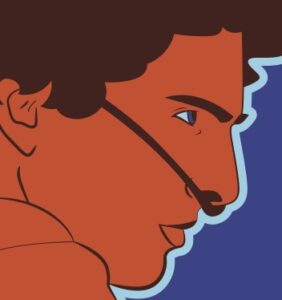The disco urse regarding the film “Dune 2” concerns me as a fan of the books by Frank Herbert. People are failing to understand the point of the movie and see the titular character,Paul Atreides, played by Timothée Chalamet, as a heroic figure. He may be the main character but he should not be admired. The film and the book warn of the dangers of religious fanaticism and blindly following charismatic leaders like Atreides.
urse regarding the film “Dune 2” concerns me as a fan of the books by Frank Herbert. People are failing to understand the point of the movie and see the titular character,Paul Atreides, played by Timothée Chalamet, as a heroic figure. He may be the main character but he should not be admired. The film and the book warn of the dangers of religious fanaticism and blindly following charismatic leaders like Atreides.
Before the movie’s release, the infamous popcorn bucket released by AMC Theaters garnered much attention due to its interesting design choices. This jumpstarted discussion and began a wave of memes, TikToks and Instagram reels, which only gained momentum when the film finally debuted.
What followed was a trend in which someone would tape something to their face loosely resembling the nose pieces of the stillsuits worn by characters in the film. Those in the videos would then make fun of the unwavering fanatic belief that Stilgar, played by Javier Bardem, and the other native Fremen people had in the messianic figure Atreides.
I found in the comments of these videos many debates regarding the theme of the film and the message it was trying to communicate. I began to notice that many people are misinterpreting the film in a way that echoes how readers of the original book did back in 1965.
I am not unbiased when it comes to the “Dune” franchise as well as the work of Denis Villeneuve. To say I am a fan of both would be an understatement. I first read Herbert’s 1965 epic “Dune” back in the seventh grade and have since reread it multiple times along with its sequel “Dune Messiah.” These novels are among some of the greatest I have ever read.
Villeneuve has become my favorite director and is one of the best storytellers of our era. It’s debatable that his work on films such as “Arrival,” “Blade Runner 2049” and now the two “Dune” films make him one of the greatest science fiction directors of all time. He is also an avid fan of the books. The amount of love he has for Herbert’s work is evident in the care he took to create a faithful adaptation of his novel. Such an adaptation however has begun to show signs of what caused Herbert to have to write the sequel “Dune Messiah.”
After the release of the book “Dune,” people began to make the same mistakes they are making today. In the book, Atreides has prophetic visions that show, if he were to take on a role as a religious and military leader to the native Fremen, it would lead to a holy war that would kill billions.
He originally is against taking up this mantle and is a very moral person. However, through tragedies and betrayals that befall himself and those he loves, he loses that sense of morality becoming a vengeful and hate-filled person. The book and film adaptation both end with him ascending the imperial throne and calling for a galactic Jihad.
The story revolves around the tragic downfall of this person’s moral character. He may begin as a good person, but it becomes clear that he is not someone who should be rooted for. It seems as though many people had a difficult time making the switch from loving to despising this person. Because of this, Herbert had to write “Dune Messiah” to drive home the point that he tried making in the first book and now it seems as though Villeneuve will be making a third movie to do the same.
I feel as though “Dune” will join the list of media in which people have a hard time understanding that the protagonist is not a good person. I have seen this same pattern with shows such as “Breaking Bad,” “The Sopranos” and the movie “The Wolf of Wall Street”. All of these tell the story of the deserved downfall of truly evil, greedy and hateful men; but yet often Walter White, Tony Soprano and especially Jordan Belfort are seen as heroes.
I see this mistake made most often by college-aged men like me; men who are looking for stories of success and men who are so encouraged by the power of the previously mentioned Icarian figures that they fail to see their flaws. Men who hang Stratton Oakmont flags in their dorm rooms and idolize Jordan Belfort for making millions.
I truly hope that one day these men begin to understand the point of what stories like “The Wolf of Wall Street” and now “Dune” are trying to say. I hope that one day they can enjoy these stories for the cautionary tales they are. I also hope that they find new stories to help them define success; stories in which financial wealth and self-actualization are obtained not by the destruction or abuse of others, but through empathy, compassion and determination.
C.E. – EC / CF / AM
